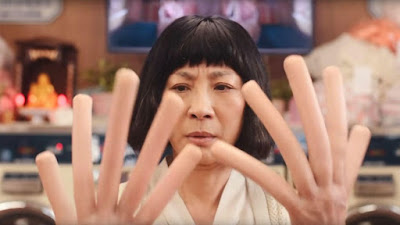On the afternoon of Saturday 8th August 2015, I sent nine rubbish bags to my local recycling centre in what was, at the time, a very lucid and easy decision.
The bags contained over two hundred and fifty Video Home System (VHS) cassettes of off-air TV recordings I had amassed from 1997, none of which were able to be recycled at the time due to the black plastic used in their composition. I had intended to digitise their contents for future use, but after realising the size of the task, and that all I had recorded on them, from obscure films that helped with my degree studies to whole series of the BBC comedy quiz "Never Mind the Buzzcocks", will continue to be available online or from archives.
My habits with recording programmes to VHS also meant you were unlikely to find anything special. I recorded in Long Play mode, reducing the maximum 240 lines of picture quality to 230, something that made very little difference when recording episodes of “The Simpsons”. I also eliminated continuity announcements and advert breaks as much as I could, their comparatively ephemeral nature now making recordings of them more highly prized. Safe in the knowledge that nothing was going to be lost from the loss of my collection, it was easy to let it go.
The big regret I still have was getting rid of the VHS recorder as well, perceiving there to be no more use for it. The random analogue glitches of an authentic VHS recording are more acceptable than the hazy VHS-like filter that can be applied to a digital video file to produce a degraded or nostalgic effect, and because making videos was not a consideration I had at the time, I saw no reason to hold the recorder back. Not readily having the ability to recreate that prized look with authentic equipment was an oversight on my part.
Changing rituals from “time-shifting” by recording programmes to watch later, to streaming everything at any time, makes it easy to forget that VHS was once the only way most people owned moving pictures, other video tape and disc formats notwithstanding. This was mainly the result of the Japanese government attempting to force manufacturers to adopt a single consumer tape format, and by JVC providing their VHS format as an open standard others could use without licence, something Sony was not willing to do with their technically superior Betamax format, its smaller cassette size also limiting their available recording time.
While we have not lost the right to make home video recordings for personal use, the ability to do so has mostly been lost. There is no open ability to download and keep programmes from streaming websites, and neither would they accept that, and while my television can record off-air video to a USB stick, it will only play back on that one television. Very occasionally, a TV station may also show a programme that has been out of circulation for decades – I am still waiting for the BBC to show John Berger’s original 1972 series “Ways of Seeing”, never issued on home video to my knowledge, instead of relying on the tie-in book.
Attaching some sort of video capture device to my television is starting to sound like good proposition, especially now the bulk of VHS cassette storage can be avoided.




